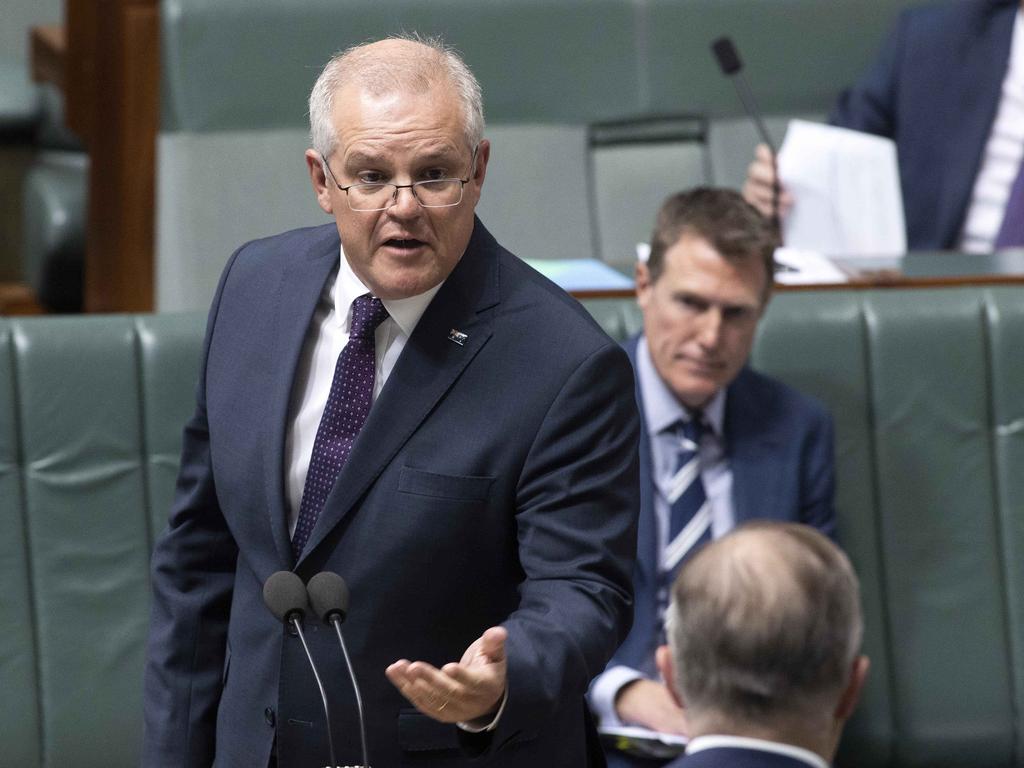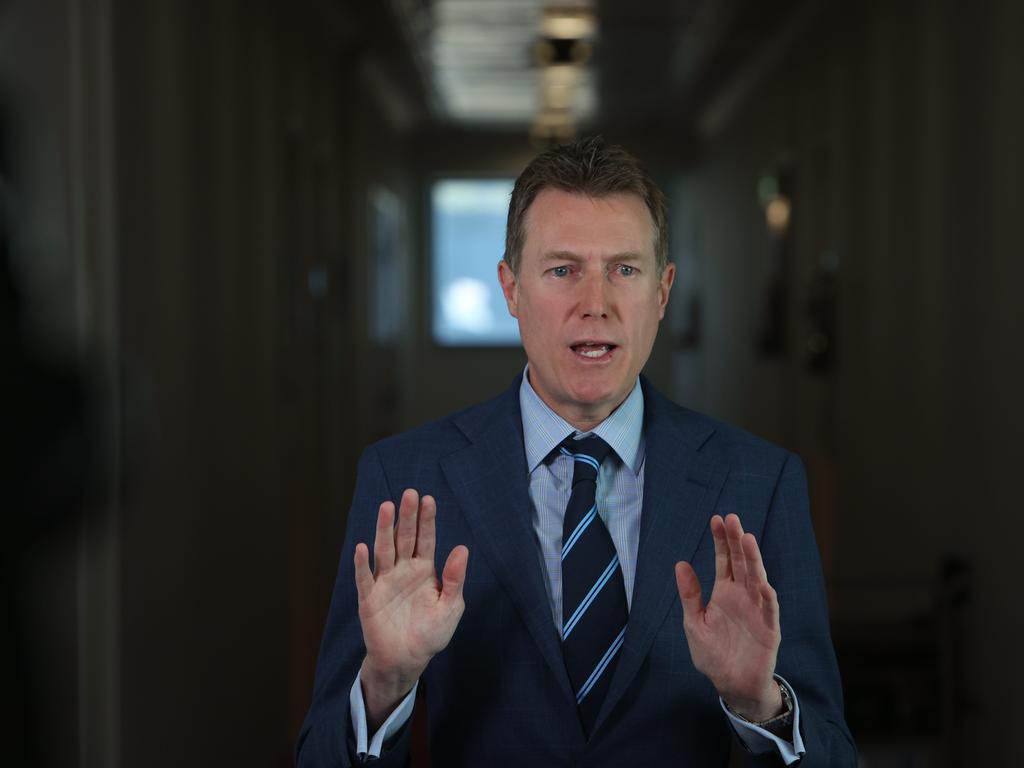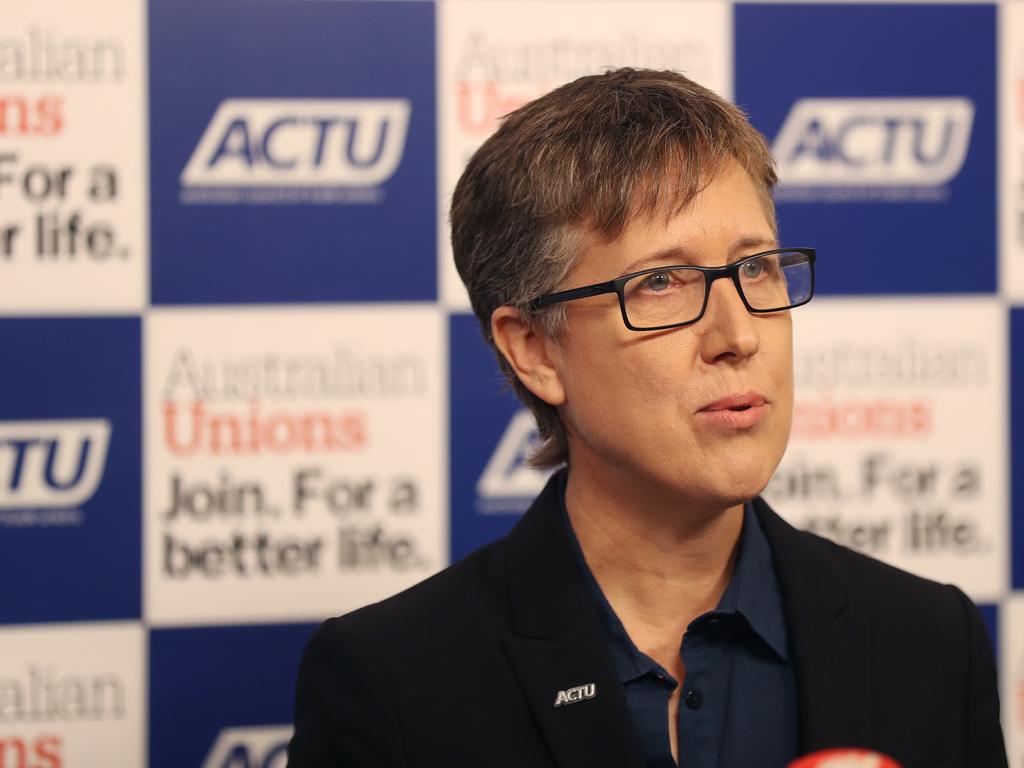Labor, unions angered by government workplace reforms
The government is proposing a suite of changes it says would free up casual work, but Labor is accusing it of targeting vulnerable workers.
Labor has drawn battlelines in a fight over proposed changes to workplace agreements, accusing the government of offering vulnerable Australians a Christmas pay cut.
The government introduced its IR omnibus bill to parliament on Wednesday, looking to free up an enterprise bargaining system it argued had become onerous.
Under the proposal, part-time workers would be able to do more hours at their normal rate but would have to forgo overtime payments. The government argued the policy would stop them losing shifts to cheap casuals.
The union movement has been particularly angered by potential changes to the better off overall test (BOOT), a key facet of the suite of changes. Employers would be given more flexibility to reach pay deals outside of BOOT.

BOOT is designed to prevent workers from entering agreements that would leave them worse off relative to their relevant award.
Under the government’s proposal, employers would be given two years to apply to the Fair Work Commission for a pay deal. Several factors would be considered, including workers’ consent and the impact of COVID-19.
Employees would not be covered by BOOT in the interim.
Labor pledged to fight the legislation, which it claimed would lead to a Christmas pay cut for workers who had kept the country going through the pandemic.
“This is a nasty act from my nasty government, which is returning to form when it comes to attacking workers wages and conditions,” said leader Anthony Albanese.
Labor ramped up its attacks in question time, accusing the government of cutting wages while the economy was still recovering from the COVID-19 pandemic.
Scott Morrison said the attacks were “simply not true”, accusing Labor of engaging in the “politics of division”.
“The claims made by the Leader of the Opposition are false,” the Prime Minister said.

“They’re designed to try and incite division in this country, but we’re used to this from the Labor Party. At the last election they tried to set one group of taxpayers against another.
“It is always the way of the Labor Party to seek to hold some down in order to advance others. “
Labor moved to suspend standing orders, accusing Mr Morrison of misleading the public by saying no worker would be worse off under the changes.
Industrial Relations Minister Christian Porter said the reforms would unclog the enterprise agreement system while still protecting workers.
“Unions and employers know the system is broken and want it fixed,” he said.
“The government has harnessed that agreement to produce a range of reforms that will make bargaining a more viable option and encourage the benefits of higher productivity and higher wages to flow from these processes.
“This measure will help to save jobs by giving those businesses that are still in some form of distress access to vital flexibilities while they recover.
“Placing a two-year time limit on such agreements will also ensure workers are not disadvantaged.”

Mr Porter claimed the BOOT system had become overly complex since it was introduced by Paul Keating’s Labor government three decades ago.
“The government’s reforms aim to restore Keating’s vision by making the bargaining system easier to engage with, faster, more efficient and, most importantly, capable of delivering those twin goals of productivity growth and higher wages,” he said.
“When that happens, the broader economy strengthens and grows, resulting in job growth – something that has never been so important as our economy continues to recover.”
Neither employers nor unions would be fully satisfied with the changes, Mr Porter claimed.
ACTU secretary Sally McManus has accused the government of going back on its assurance the community was “in this together” during the COVID-19 pandemic.
“The union movement will fight these proposals which will leave working people worse off,” she said.
“Working people, essential workers, have already sacrificed so much during this pandemic. These proposed laws will punish them.
“The economy, local businesses will not be able to recover if workers are facing pay cuts. Families need the confidence to spend. You can’t heal the economy by hurting working people.”

The laws would also mean employers who had casual workers for a year, and gave them regular shifts for six months, would be mandated to offer them permanent work.
Ms McManus last week called for casual work to be cut and replaced with permanent work. Mr Porter said he was not looking for a fight with the unions and would continue to negotiate in good faith.
But Labor industrial relations spokesman Tony Burke said the bill did not include adequate enforcement measures.
“You can drive a truck through how easy it is to get out of that,” he said.
“If an employer was caught running foul of the rules there is no remedy because you only get arbitration if it’s by consent from the employer.
“How many vulnerable casuals do you honestly think will say to their boss, I’ll now take you to the Federal Court of Australia?”



